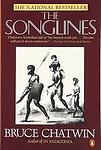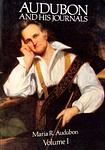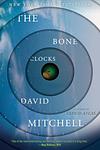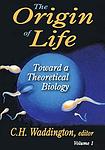The Greatest British "Australia" Books of All Time
Click to learn how this list is calculated.
This list represents a comprehensive and trusted collection of the greatest books. Developed through a specialized algorithm, it brings together 300 'best of' book lists to form a definitive guide to the world's most acclaimed books. For those interested in how these books are chosen, additional details can be found on the rankings page.
Genres
The "Australia" category for books would encompass literature that is set in or explores the culture, history, and geography of Australia. This could include works of fiction, non-fiction, memoirs, and travelogues that showcase the unique characteristics of the country, such as its diverse landscapes, indigenous cultures, and colonial history. The category would appeal to readers interested in learning more about Australia and its people, as well as those seeking engaging stories set in this fascinating part of the world.
Countries
Date Range
Reading Statistics
Click the button below to see how many of these books you've read!
Download
If you're interested in downloading this list as a CSV file for use in a spreadsheet application, you can easily do so by clicking the button below. Please note that to ensure a manageable file size and faster download, the CSV will include details for only the first 500 books.
Download-
1. The Voyage of the Beagle by Charles Darwin
This book is a vivid and exciting travel memoir as well as a detailed scientific field journal covering biology, geology, and anthropology that demonstrates the author’s keen powers of observation, written at a time when Western Europeans were still discovering and exploring much of the rest of the world. The author's five-year journey took him from the coasts of South America, Australia, and Africa to the South Pacific islands, during which he collected and documented the natural history of these areas. The voyage and the specimens he brought back would later form the basis for his famous theory of evolution.
-
2. A Town Like Alice by Nevil Shute
"A Town Like Alice" is a novel about a young Englishwoman, who is captured by Japanese forces during World War II and forced to march with other women and children across Malaya. During her ordeal, she meets an Australian prisoner of war, whom she later seeks out in Australia after the war. With the help of an unexpected inheritance, she uses her entrepreneurial spirit to transform a desolate Australian town into a thriving community, similar to a quaint English village she once knew, hence creating a 'town like Alice'.
-
3. Rites of Passage by William Golding
"Rites of Passage" is a historical novel that explores the journey of a young aristocrat, Edmund Talbot, who is traveling from England to Australia in the early 19th century. The story is told through Talbot's journal entries, which provide a detailed account of life aboard the ship, including the social dynamics, the harsh conditions, and the psychological struggles faced by the passengers and crew. The novel also delves into themes of class, power, and the human condition, culminating in a tragic event that forces Talbot to confront his own prejudices and assumptions.
-
4. Melbourne by David Cecil
This book provides an in-depth look at the life of William Lamb, 2nd Viscount Melbourne, who served as Prime Minister in early 19th century Britain. It explores his personal life, including his scandalous marriage and the tragic death of his only legitimate child, as well as his political career. The book also delves into his relationship with Queen Victoria, whom he served as a trusted advisor and mentor during the early years of her reign.
-
5. The Songlines by Bruce Chatwin
The book is a semi-fictional account of the author's journey through the Australian Outback, where he explores the culture of the Aboriginal people, particularly their concept of 'Songlines' - invisible pathways that crisscross Australia, ancient tracks connecting communities and following the journeys of ancestral spirits. As he travels, he delves into the nomadic way of life, the idea of walking as a spiritual practice, and the deep connection between the Aboriginal people and the land. The narrative is interspersed with philosophical discussions on topics like nomadism, anthropology, history, travel, and the nature of human restlessness.
-
6. The Last Inch by James Aldridge
The novel revolves around the gripping tale of a young boy's unwavering determination and resilience. Set against the backdrop of World War II, the protagonist, a teenage boy, embarks on a perilous journey across war-torn Europe in a desperate attempt to reunite with his family. Facing numerous challenges and navigating through the dangers of a continent engulfed in conflict, his journey is a testament to the strength of the human spirit and the power of hope. Through his eyes, readers experience the horrors of war, the complexity of human emotions, and the indomitable will to survive against all odds.
-
7. Journals (Cook) by James Cook
This book is a compilation of the personal journals of an 18th-century British explorer and naval captain, who embarked on three significant voyages of discovery across the Pacific Ocean. These entries provide a firsthand account of his encounters with various indigenous peoples, his detailed observations of the flora, fauna, and geography of newly discovered lands, and his experiences of seafaring life. The journals also record his scientific experiments and astronomical observations, contributing to the fields of geography, anthropology, and ethnography.
-
8. The Recollections Of Geoffrey Hamlyn by Henry Kingsley
The book is a classic example of 19th-century Australian literature, set against the backdrop of the Australian gold rush era. It follows the life and adventures of the titular character, who leaves England to settle in Australia. Through his eyes, readers experience the challenges and triumphs of colonial life, including interactions with the indigenous population, the camaraderie among settlers, and the impact of the gold rush on society and the environment. The narrative weaves together themes of friendship, love, loss, and the quest for fortune, all while painting a vivid picture of Australian landscapes and the rugged life of its early European settlers.
-
9. It Is Never Too Late To Mend by Charles Reade
This novel is a Victorian tale of justice and reform, focusing on the experiences of a man wrongfully imprisoned due to the machinations of a rival. Within the grim walls of the prison, he endures harsh treatment and witnesses the corruption and brutality of the penal system. The narrative weaves together themes of love, betrayal, and the quest for redemption, as the protagonist's friends work tirelessly to clear his name. Throughout the story, the author exposes the flaws of the contemporary justice system and advocates for social change, emphasizing the moral that it's never too late to correct a wrong and seek to improve oneself and society.
-
10. The Bone Clocks by David Mitchell
This novel weaves together the lives of diverse characters through a narrative that spans decades, centering on a teenage runaway with psychic abilities. As she becomes embroiled in a covert war between immortal factions, the story explores themes of mortality, power, and the interconnectedness of human lives. The intricate plot moves through different times and places, revealing a hidden world of mysticism and a looming apocalyptic crisis, all while examining the impact of our actions on the future of the planet.
-
11. The Nature of Life by C. H. Waddington
"The Nature of Life" is a comprehensive exploration of the biological and philosophical aspects of life. The author delves into the complexity of life, discussing concepts such as evolution, genetics, development, and the environment. The book also explores the philosophical implications of these concepts, examining the relationship between science and philosophy and the nature of life itself. The author's extensive knowledge and innovative ideas provide a unique perspective on the subject, making it a thought-provoking read for anyone interested in biology and philosophy.
-
12. Our Country’s Good by Timberlake Wertenbaker
Set in the late 18th century, the narrative revolves around a group of British convicts and their naval officers sent to an Australian penal colony. Amidst the harsh conditions, an ambitious young lieutenant decides to put on a play with the convicts as a means to rehabilitate them and raise morale. The story explores themes of redemption, the transformative power of art, and the complexities of the human condition as the convicts rehearse and navigate their personal struggles, social dynamics, and the rigid class structures imposed by their captors. The play within the book becomes a catalyst for change, challenging the characters' perceptions of punishment, civilization, and what it means to be a 'good' person in a society that has branded them as outcasts.
-
13. Reliable Essays: The Best of Clive James by Clive James
This book is a collection of essays from a renowned critic, covering a wide range of topics from television to literature and reflecting his sharp wit and insightful observations. The author's unique voice shines through in each piece, whether he's discussing the state of modern television or the nuances of a particular piece of literature. His commentary is both thought-provoking and entertaining, making this collection a must-read for fans of cultural criticism.
-
14. Gipsy Moth Circles the World by Francis Chichester
This book chronicles the author's solo sailing journey around the globe in his yacht, the Gipsy Moth IV. Battling harsh weather conditions, loneliness, and equipment failure, he successfully circumnavigates the world, starting and ending in England, and becoming the first person to do so by the clipper route, and the fastest circumnavigator, in nine months and one day overall. The book details his adventure and the challenges he faced, providing an intimate look at the world of sailing and exploration.
-
15. Adventures Of A Young Naturalist by Sir David Attenborough
This book is a captivating memoir that chronicles the early expeditions of a renowned naturalist and broadcaster. It details his formative journeys through the wilds of Guyana, Indonesia, and Paraguay during the 1950s, where he collected specimens for the British Museum and filmed groundbreaking wildlife footage. The narrative is filled with the excitement of discovery, the beauty of untouched nature, and the sometimes humorous, sometimes perilous experiences of a young man deeply passionate about the natural world. His adventures lay the foundation for what would become an extraordinary career in educating and inspiring the public about the wonders of biology and the importance of conservation.
-
16. English Passengers by Matthew Kneale
Set in the 19th century, this novel follows a group of Englishmen who, driven by different motivations, set off on a voyage to Tasmania. The group includes a vicar who believes Tasmania is the site of the Garden of Eden, and a doctor who is interested in studying the 'inferior' races. When they arrive, they encounter the harsh realities of British colonial rule and the near-extinction of the native population. The story is told from multiple perspectives, including that of a Tasmanian man, which provides a broad view of the cultural and social complexities of the era.
Reading Statistics
Click the button below to see how many of these books you've read!
Download
If you're interested in downloading this list as a CSV file for use in a spreadsheet application, you can easily do so by clicking the button below. Please note that to ensure a manageable file size and faster download, the CSV will include details for only the first 500 books.
Download












